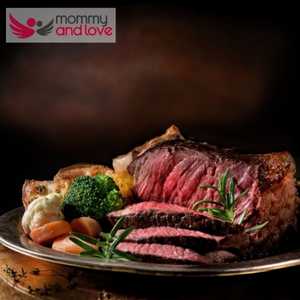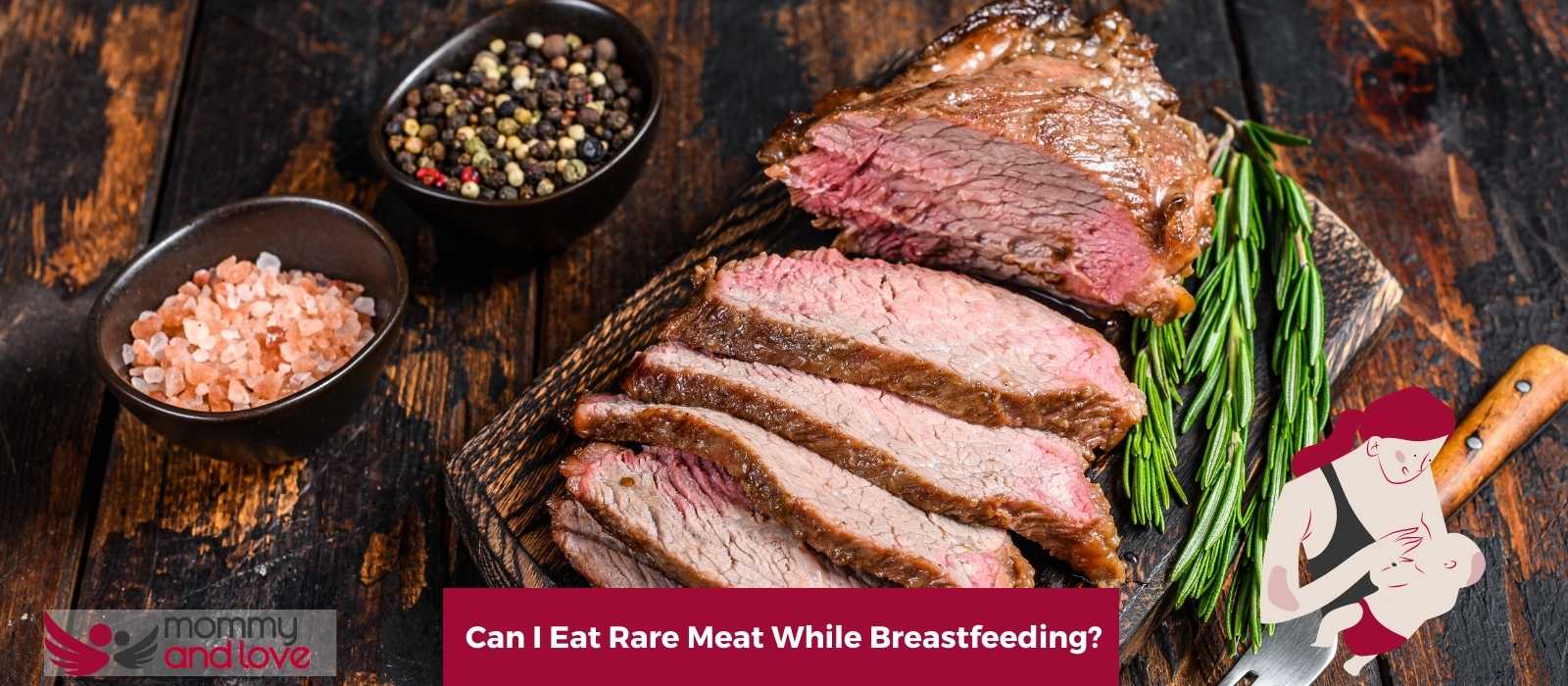Any breastfeeding mother will tell you that she is always looking for information on what she can and cannot eat. It seems like there are so many foods that are off-limits! Knowing what foods to avoid while breastfeeding is important. Can you really eat rare steak while breastfeeding? Let’s take a closer look at the facts.
The answer to this question is a little more complicated than a simple yes or no. There are some types of rare meat that are safe to eat while breastfeeding, but others that are not. Some types of meat that are safe to eat include beef, pork, lamb, and poultry. However, some types of meat that are not safe to eat include fish, shellfish, and deli meats. It is important to be aware of the different types of meat that are safe to eat while breastfeeding in order to make sure that you are providing your baby with the nutrients that they need.
What are the benefits of eating rare meat while breastfeeding?
There are a few potential benefits when you eat rare steak while breastfeeding. First, rare meats can provide important nutrients that are beneficial for both the mother and baby. Additionally, some people believe that consuming rare meat can help improve the quality of breast milk.
Some people believe that raw meats while breastfeeding can provide a number of benefits to the child. They claim it can improve immunity, increase brain function and development, and even improve sleep.
However, there is no scientific evidence to support these claims. The World Health Organization recommends cooking the meat thoroughly before eating it because raw food or undercooked meat may be a risk factor for foodborne illnesses.
What are the health concerns about eating rare meats while breastfeeding?

There are a few health concerns that come with eating rare meats while breastfeeding.
The main concern is the bacteria in the meat. This can be harmful to your child if it makes its way into breastmilk and they ingest it.
This is because of the risk of contracting toxoplasmosis, a parasite that can cause fetal death and birth defects. It is possible for this parasite to be transmitted from mother to child through the placenta or through breastmilk.
The risk of getting toxoplasmosis is high if a person eats rare beef. It is also possible that nursing moms can contract it by handling raw food, especially if they wear their hands while cooking or cleaning up afterward.
Another concern is food poisoning associated with bacteria like salmonella. When a mother suffers food poisoning, the bacteria normally do not transmit to your breastfeeding baby through breast milk. It remains in Mom’s intestine. Although salmonella can (rarely) enter the bloodstream and milk, breastfeeding is still an effective strategy to safeguard breastfed babies.
How much raw meats can I eat when breastfeeding?
We know that breastfeeding is the best way to feed your baby. But, what about raw meats?
Protein is important for both you and your baby. You need it to help your body recover from childbirth and grow healthy hair, nails, muscles and other tissues. Your baby also needs protein for growth and development.
Breastfeeding moms can get enough protein and should eat a variety of foods with protein, like lean meat, eggs and dairy products. So how much meat can I eat when breastfeeding?
The answer depends on how old your child is. If he or she is less than six months old then you should have at least three servings of protein a day. If he or she is older than six months then you should have at least two servings of protein a day.
Does rare meat affect breast milk supply?

The idea that a mother’s diet can affect her breast milk is not new. Having more milk is important and breast milk is a living fluid, and it changes depending on what the mother eats.
But the question of whether or not meat affects breast milk has yet to be answered definitively.
The truth is that meat consumption does not affect breast milk production. The protein in the meat will not be transferred to breast milk because it does not pass through the digestive tract and into the bloodstream. However, protein is an important part of a breastfeeding diet because it does help increase breast milk supply in breastfeeding mothers.
Can a breastfed baby be allergic to rare meat?
Some people believe that babies cannot be allergic to meat because the immune system is not developed enough to recognize the food as an allergen.
However, there are some studies that suggest that it is possible for a baby to be allergic to meat if they are breastfed by a mother who has an allergy to meat.
If your baby is showing any signs of food allergy such as swelling, difficulty breathing, diarrhea, rashes or hives, seek medical attention from your healthcare provider right away.
Take Away on Raw Meat for the Breast-feeding Mother
Ultimately, it is up to the mother to decide whether or not she wants to eat raw meats or rare steak or even eat raw oysters while breastfeeding. There are potential benefits and risks to consider, so it is important to weigh all of the information before making a decision. Healthy eating is important. Your diet should consist of nutritious foods that provide health benefits and essential nutrients to your baby’s nutrition and yours.
Regardless of your food preferences, certain foods should be avoided.
If you do choose to eat raw meats or a rare steak, be sure to take precautions to avoid getting sick. Stay hydrated, handle meats properly, consider other foods and avoid eating high-risk foods.
Knowing what foods to avoid while breastfeeding is extremely important. By following simple guidelines, you can enjoy the benefits of raw meats while breastfeeding without putting your health at risk.

This article was written by Sandra Baker – full time writer and the mother of four amazing kids (including twins!)
She’s also a breastfeeding counselor and has spent years helping new parents learn how to care for their children. When she’s not writing or caring for her children, Sandra likes to spend time reading and taking walks with her husband.




